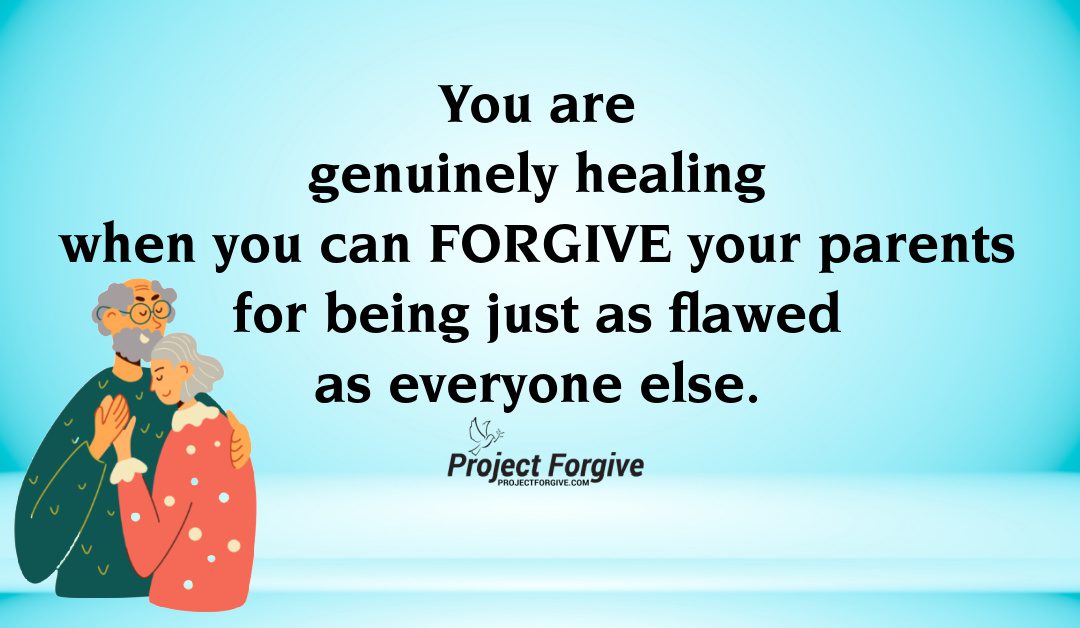When it comes to forgiveness, parents just may be the toughest to forgive, especially if you have childhood trauma.
But here’s the thing, no matter what your history is regarding your parents, you take those primary relationships into every single relationship throughout your entire life. We find our parents in our partners, our bosses, our friends and even translate those unresolved resentments to future generations: with our children.

Elderly Couples Surprise and gift box at living room
Maybe you were rejected by your mom. When you evolve and grow, similar situations of rejection will show up in your career and potential love interests. The goal is to face the past pain, so you can heal it and make more evolved choices.
You’ve probably heard it before: What you don’t repair, you repeat.
The dilemma with forgiving parents is that many times its subconscious pain. Subconscious pain or grief shows up in your life in a sideways kind of way – such as overeating, struggling to say no, and constantly picking people in your life who reject you, for example.
With that said, here are a few things you can do right now to heal, let go of old wounds with your parents, move on and eventually accept and forgive:
1) It’s time to develop realistic expectations.
Our expectations of our parents can be stringing us along with unrealistic hope. If you experienced a lot of criticism as a child, chances are high that your parent is not going to be giving you high praise for achievements anytime soon. And yet, sometimes we’re wishing and hoping for that. Acceptance of who they are, and who they are not, can give you extraordinary peace.
2) Start focusing on the good stuff.
From an adult perspective, it’s easy to embrace that most parents love their children. Even though no parent is perfect, research supports the continuity of parental love overall. When you can focus on that your parents loved you the best they could, even in the face of things that hurt you, you’ll be stronger for it. Everyone has childhood wounds. Everyone. Yes, some are more severe than others and focusing on the good stuff is not to deny any pain. It’s merely to broaden the picture from the eyes of an adult, rather than from the hurt of a child.
3) Experience and foster healthy separation.
Consider separating your internal world from your parent’s rejection, brutality, character flaws or any other limit you may have attached with their love. In other words, it’s about shifting the perception that our parents cannot provide our emotional well-being as adults. This is how you stop the continuous cycle of victimization and embrace that you shape your own life and have the responsibility to do so, now, as an adult.
4) Give your parents the benefit of the doubt.
True, it was far from perfect. When you start graciously providing the benefit of the doubt for your parents, you can begin to let them back into your heart, despite the circumstances and their limitations. This process of compassion begins when you recognize some goodness that any past pain has pushed aside.
5) Commit to the journey of healing.
Finding acceptance and forgiveness for your parents is a complicated process and journey. You have to be ready to forgive and truly want to. Forgiveness is not for them, it’s for you. The stages of forgiveness are shock, anger, grief, acceptance, and peace. Allowing all these emotions at different intervals, allows the healing to take place. Be patient and gentle with yourself.
You deserve to heal.
If inspired, please share.


